How Australia will begin reopening its borders from next month
Residents will be allowed to travel abroad after 80% of their home state has been vaccinated
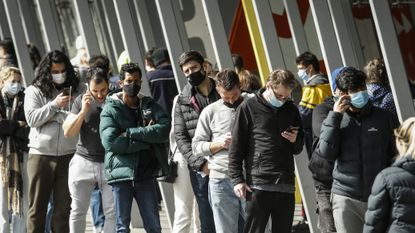
Australia is gearing up to reopen to the rest of the world after more than 18 months of Covid-19 isolation.
Under plans for a phased reopening announced by Prime Minister Scott Morrison, thousands of Australians “marooned” in other countries will be allowed to return from November provided they are vaccinated and take a pre-flight Covid test, reported The Times. And rather than Australia’s mandatory 14-day hotel quarantine - which costs each traveller A$3,000 (£1,600) - the requirement for double-jabbed returning nationals will be cut to seven days of self-isolation at home.
“It’s time to give Australians their lives back,” Morrison said at a televised media conference on Friday. “We’ve saved lives. We’ve saved livelihoods, but we must work together to ensure that Australians can reclaim the lives that they once had in this country.”
Subscribe to The Week
Escape your echo chamber. Get the facts behind the news, plus analysis from multiple perspectives.

Sign up for The Week's Free Newsletters
From our morning news briefing to a weekly Good News Newsletter, get the best of The Week delivered directly to your inbox.
From our morning news briefing to a weekly Good News Newsletter, get the best of The Week delivered directly to your inbox.
As the BBC noted, since March 2020, Australia “has had some of the world’s strictest border rules”. Residents have been allowed to leave only for exceptional reasons such as essential business or to visit a dying family member, while entry has been limited almost exclusively to citizens and has been subject to strict quota limits.
The newly announced reopening does not include allowing foreigners into the country, but ministers said in a statement that the government was working “towards welcoming tourists back to our shores”.
According to Reuters, a government source confirmed that that such plans were being discussed, “but it was not possible to yet state a timetable”.
However, many thousands of Australians will soon become eligible to travel out of the country, after their state’s vaccination rate hits 80% of over-16s.
Sign up for Today's Best Articles in your inbox
A free daily email with the biggest news stories of the day – and the best features from TheWeek.com
“New South Wales - which includes Sydney - is on track to be first state to cross the 80% threshold, in a few weeks,” said the BBC. “Victoria - containing Melbourne - is not far behind.”
The hotel isolation requirement is also being scrapped in favour of seven days at home for fully vaccinated Australians and permanent residents who go abroad and then return after borders are reopened. Australians who are not vaccinated will be still be required to isolate in a hotel, however, with the exception of under-12s and people with medical conditions.
And states including Western Australia and Queensland - which are still pursuing coronavirus elimination policies - have threatened to keep their borders closed until their vaccination rates are even higher than 80%.
“All of that is going to make the practicalities of reopening international borders quite tricky,” wrote the BBC’s Australia correspondent Shaimaa Khalil.
Airlines “have already said they’re not ready for the ramping up of services this reopening will require”, she continued, and “with so many details still vague in terms of restrictions and proof of vaccination, this could be a potential headache for border authorities too”.
The result could be “a scenario where it could be easier for people in some states to travel to London for a vacation than it is to go to Perth”, Khalil added.
Create an account with the same email registered to your subscription to unlock access.
-
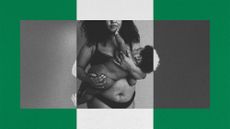 Nigeria's worsening rate of maternal mortality
Nigeria's worsening rate of maternal mortalityUnder the radar Economic crisis is making hospitals unaffordable, with women increasingly not receiving the care they need
By Harriet Marsden, The Week UK Published
-
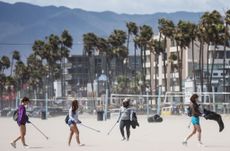 'Elevating Earth Day into a national holiday is not radical — it's practical'
'Elevating Earth Day into a national holiday is not radical — it's practical'Instant Opinion Opinion, comment and editorials of the day
By Harold Maass, The Week US Published
-
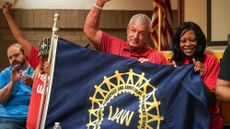 UAW scores historic win in South at VW plant
UAW scores historic win in South at VW plantSpeed Read Volkswagen workers in Tennessee have voted to join the United Auto Workers union
By Peter Weber, The Week US Published
-
 6 fabulous hotels to visit in April
6 fabulous hotels to visit in AprilThe Week Recommends Stay at a zoo in Sydney, or meet vortex hunters in Sedona
By Catherine Garcia, The Week US Published
-
 Breathtaking: the Covid drama that may make you scream
Breathtaking: the Covid drama that may make you screamThe Week Recommends ITV three-parter is a 'tour de force' that exposes 'political complacency'
By Chas Newkey-Burden, The Week UK Published
-
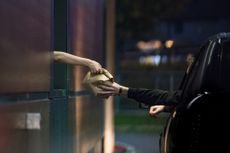 The lasting changes of the post-pandemic dining era
The lasting changes of the post-pandemic dining eraThe Explainer The newest of new normals
By Scott Hocker, The Week US Published
-
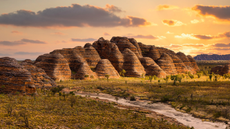 An epic road trip in Western Australia
An epic road trip in Western AustraliaThe Week Recommends There is a lot to do on a trip to the 'extraordinary' Kimberley region of northwest Australia
By The Week UK Published
-
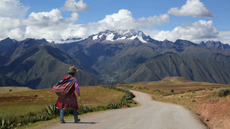 Fabulous foodie adventures in Peru, Japan and Australia
Fabulous foodie adventures in Peru, Japan and Australiafeature Featuring a Peruvian pilgrimage and foraging in the Volcanic Lakes and Plains
By The Week Staff Published
-
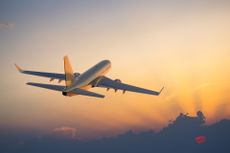 How revenge travel is impacting the aviation and tourism industries
How revenge travel is impacting the aviation and tourism industriesTalking Point The surge in travel is a far cry from the previous pandemic years during which travel took a hit
By Devika Rao Published
-
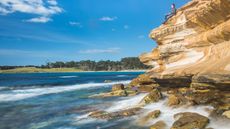 A stunning road trip around Tasmania
A stunning road trip around TasmaniaThe Week Recommends With its diverse wildlife, sandy beaches and tropical coves, Tasmania packs a lot of scenery
By The Week Staff Published
-
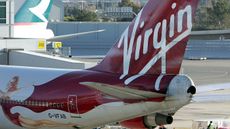 Virgin Atlantic fined for violating Iraqi airspace
Virgin Atlantic fined for violating Iraqi airspaceSpeed Read Airline said the incursions were accidental and caused by the Covid-19 pandemic
By Chas Newkey-Burden Published